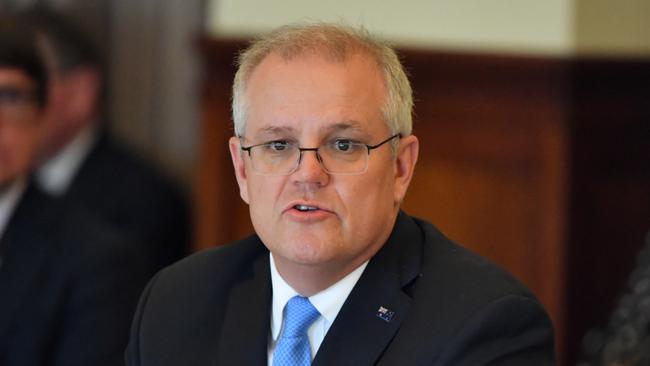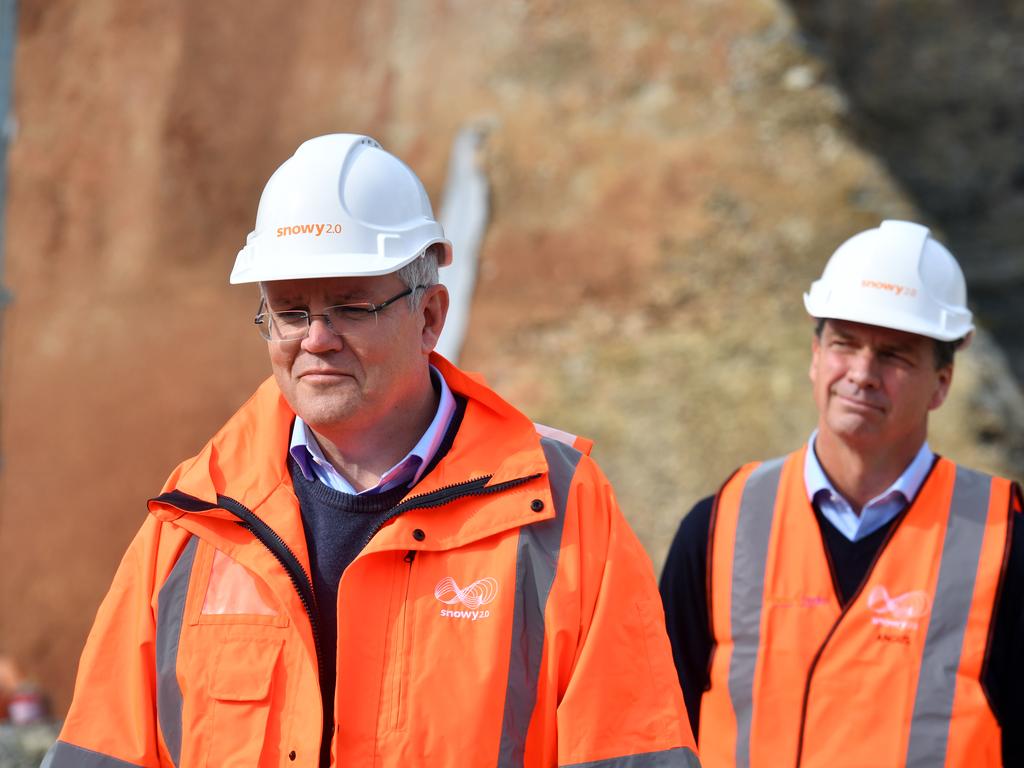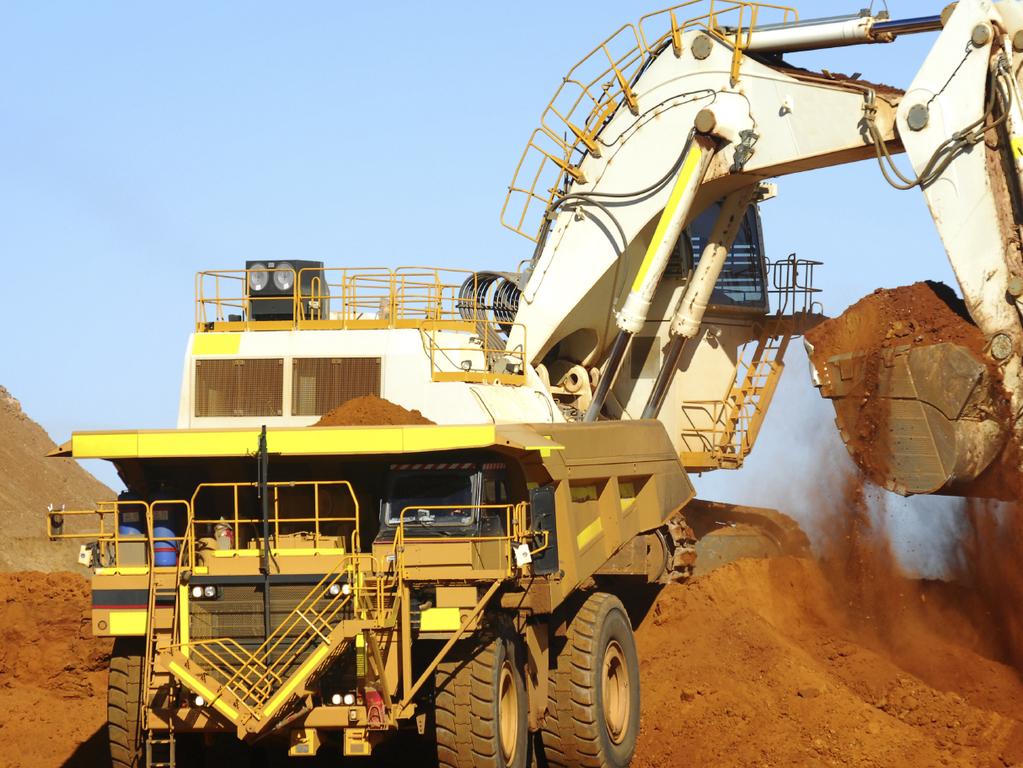China ban on coal ‘an FTA breach’
An ‘all-but-official’ Chinese boycott of Australian coal is a ‘lose-lose’ situation that breaches free trade deal, PM warns.

Scott Morrison has hit back over an “all-but-official” Chinese boycott of Australian coal, warning it was a “lose-lose” situation that would breach the landmark free trade deal with Beijing and drive up carbon emissions.
The Prime Minister warned that the Australia-China relationship, which has sunk to its lowest levels since diplomatic ties were established nearly 50 years ago, must be built on mutual benefit and support the “economic performance of both countries”.
Amid trade threats and tariffs imposed by China against Australian products including wine, barley, beef, timber and lobster, senior ministers Simon Birmingham, Marise Payne and David Littleproud joined Mr Morrison in warning Beijing that a strike against coal would be in breach of both WTO and CHAFTA rules.
Coal exporters on Tuesday attempted to open direct lines with Chinese customers to ascertain the accuracy of reports in Beijing’s state-owned newspaper The Global Times about Australian thermal coal being black-listed in favour of domestic producers and markets in Mongolia, Indonesia and Russia.
Mr Morrison said the government had not received any “official information” about restrictions on coal exports from Chinese officials and was treating the threats as Chinese state-owned “media speculation”.
He said any move against Australian coal exports would “obviously be in breach” of World Trade Organisation rules and the China-Australia FTA.
Mr Morrison said China was “not our biggest market for thermal coal”, with exports to Japan double those to the Communist nation and India remaining Australia’s top market for metallurgical coal. “Our coal mines and our coal exports have a diverse customer base,” Mr Morrison said. “But, obviously, we take these issues very seriously.”
Mr Morrison said if China slapped restrictions on Australian thermal coal, which is used to fuel coal-fired power stations, carbon emissions would increase.
“Because Australian coal compared to the coal that is sourced from other countries, the other countries have 50 per cent higher emissions than Australian coal,” he said. “As a result, that would be a bad outcome for the environment. It would be a bad outcome for the trading relationship between Australia and China, that both countries benefit from.”
The nation's top miners held crisis talks with the Minerals Council of Australia over the escalating trade tensions.
MCA chief executive Tania Constable called on the Australian and Chinese governments to “resolve these issues and restore stability to the long-term trading relationship”.
“The success of this relationship has relied on a rules-based trade system, which has supported many years of economic growth and job creation, especially in Australia’s regions,” Ms Constable said.
China’s black-listing of Australian coal has raised alarm among the almost 1000 sailors stuck aboard about 80 bulk carrier ships off China’s east coast carrying coal that is not being offloaded. The ships’ owners are threatening legal action against Chinese buyers over the mounting costs of a trade ban that has crunched the nation’s second biggest export industry.
Senator Birmingham said the government was “very, very concerned” about reports Chinese state-owned companies would “boycott and discriminate against Australian product going into China”. He warned it could “constitute a breach of China’s commitments to the globe in terms of their membership of the World Trade Organisation” as well as its commitments to Australia in the free trade agreement.
Senator Payne said government ministers had been trying to speak to their Chinese counterparts, including Foreign Minister Wang Yi, and that “offers have been made consistently”.
A senior government source said the coal export market had buffers, with thermal coal exports to Japan doubling the China market. Thermal coal accounts for about $4bn of the $13.5bn coal trade to China.
With President Xi Jinping adopting a target of net zero emissions by 2060, jettisoning Australian coal is considered a negative move. One tonne of Australian thermal coal produces as much energy as 1.5 tonnes of Chinese product and other imported sources, meaning emissions would be higher if it was sourced elsewhere.
Japan is Australia’s biggest thermal coal market at $9.6bn, followed by China ($4bn), South Korea ($3.3bn) and Taiwan ($2.8bn). The biggest markets for Australia’s metallurgical coal exports are India at $10.2bn, followed by China ($9.7bn), Japan ($7.4bn), Korea ($3.8bn) and Taiwan ($2.5bn).
A resources sector source said the coal industry expected China would have no option but to keep sourcing Australian metallurgical coal. Mr Xi’s post-COVID-19 infrastructure spending spree will require coking coal to make steel, and Australia is the world’s biggest exporter of the commodity.
“While it will probably get worse before it gets better, the feeling is that this comes down to supply and demand, and China needs our met-coal to make steel to meet the aspirations of their middle class,” the source said.
Additional reporting: Perry Williams







To join the conversation, please log in. Don't have an account? Register
Join the conversation, you are commenting as Logout